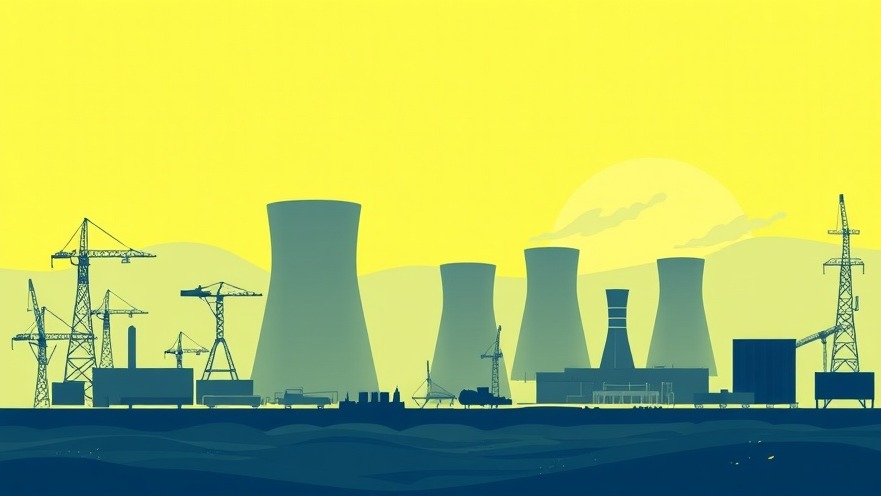
Supreme Court's Decision: A Step Forward for Nuclear Waste Storage
The U.S. Supreme Court's recent ruling has added a fresh layer of complexity to the debate surrounding nuclear waste management in Texas and New Mexico. With a narrow 6-3 vote, the Court has removed significant legal obstacles that previously stymied plans to temporarily store nuclear waste in these regions, even though no immediate implementation is on the horizon. This decision highlights the ongoing discussions about nuclear energy's role in meeting America's energy demands amidst concerns of climate change.
A Major Roadblock Removed, But Challenges Persist
While the Supreme Court's ruling does not signal an immediate start to nuclear waste storage in Texas's deserts, it reopens discussions in a landscape where nuclear energy is being reconsidered as a viable option. Despite the ruling, Interim Storage Partners (ISP), the company poised to manage the facility in West Texas, has announced it will not push forward without the state's approval. Texas Governor Greg Abbott has already stated his opposition, reiterating Texas law that mandates nuclear waste can only be stored at sites where reactors operate, further complicating a path forward for nuclear storage initiatives in the state.
Understanding State Reactions and Legal Implications
This ruling comes at a time when Texas is looking to expand its energy portfolio. Advocates like Reed Clay from the Texas Nuclear Alliance argue that the Supreme Court's action should be a catalyst for meaningful dialogue about the state's energy future. However, Abbott’s administration seems steadfast in its position against creating a nuclear waste site near one of the country’s most productive oil fields, presenting a clear clash between nuclear ambitions and existing environmental and safety concerns.
Examining the Impact on Future Nuclear Plans
The implications of this ruling stretch beyond Texas, impacting a similar storage facility proposed in New Mexico. Here too, stakeholders are faced with navigating complex state regulations and public sentiment toward nuclear solutions. As the nation grapples with nuclear waste management, Texas's legislative actions and decisions could set precedents that affect policies nationwide.
Cultural Sentiments Towards Nuclear Energy
The conversation surrounding nuclear energy often reflects broader societal sentiments. In regions surrounded by energy production—like West Texas and New Mexico—there is a unique mix of acceptance and resistance towards nuclear technologies. While some view nuclear energy as essential for reducing carbon footprints, others remain wary due to its storied history of accidents and waste management problems.
National Context and Future Trends in Energy Policy
This legal battle over nuclear waste is emblematic of larger national tensions regarding energy policy. With increasing pressure to shift towards renewable energy sources, nuclear energy remains a contentious yet potentially pivotal player in the future U.S. energy landscape. The balance between achieving energy independence, environmental safety, and technological advancement is more crucial than ever.
What This Means for Texas Residents: An Ongoing Conversation
As the conversation about nuclear energy and waste management evolves, residents of Texas and New Mexico are likely to feel the implications of these developments. It's essential for the public to stay informed and engaged with local and state policies that impact their health and safety, particularly around nuclear resources.
Conclusion: Stay Informed and Engaged About Nuclear Developments
The Supreme Court's ruling has opened the door for nuclear waste storage discussions in Texas and New Mexico, but significant hurdles remain. Engaging with your local representatives and advocating for safe, responsible energy policies will be crucial in shaping the future health and safety of our communities. Keep abreast of Texas news to stay informed about how these developments will directly impact your region.
 Add Element
Add Element  Add Row
Add Row 



Write A Comment